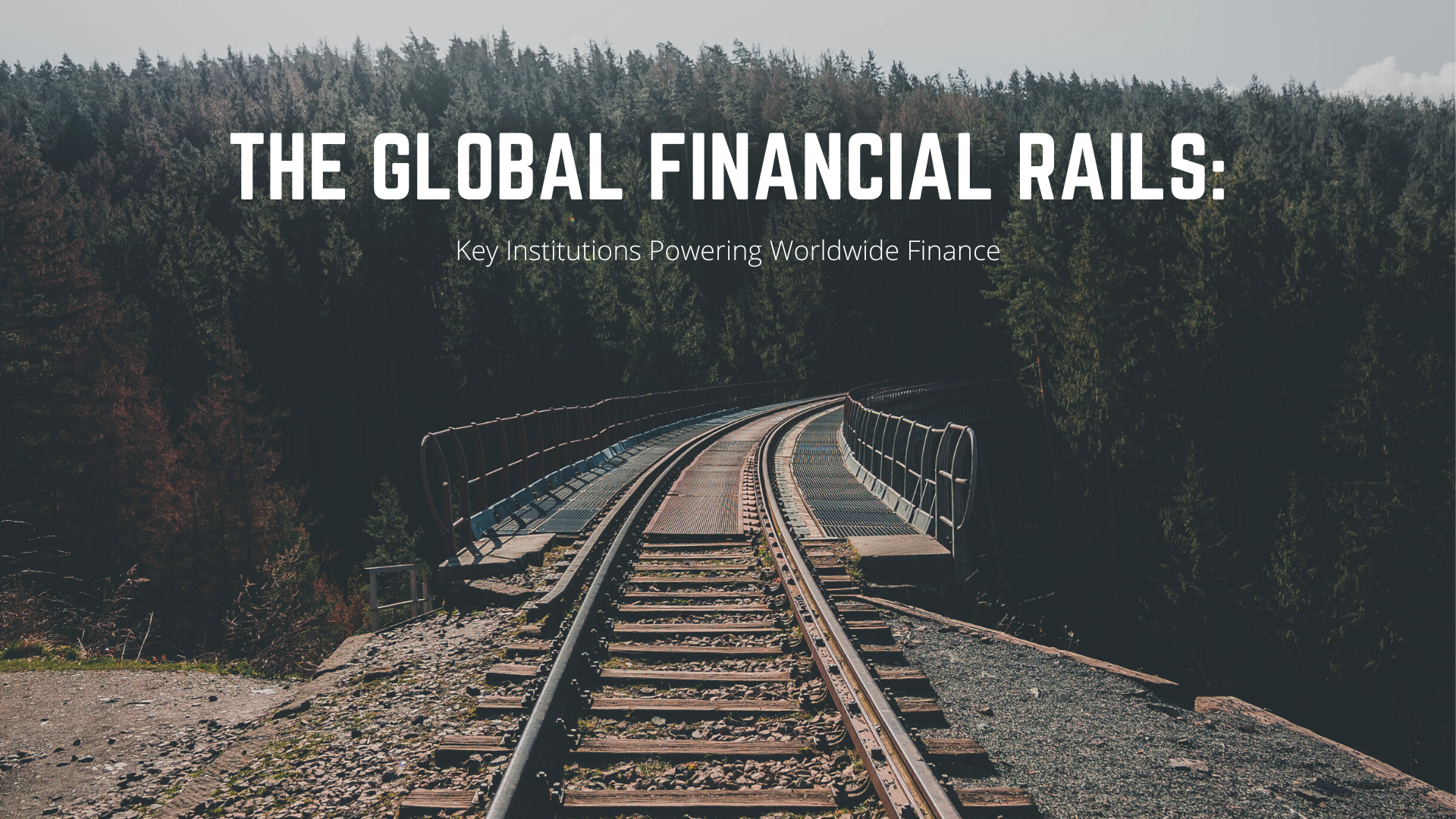Beneath the thousands of financial institutions and fintechs operating globally, a core backbone of central banks, clearing houses, custodians and financial market infrastructure powers the flow of money worldwide. These organizations act as the “rails” facilitating payments, clearing, settlement, and monetary policy.
While fintech innovation happens at the edges, these global financial rails remain indispensable for smoothly functioning markets. Here are some of the most influential institutions underpinning global finance:
Central Banks
Central banks like the Federal Reserve, European Central Bank, and Bank of Japan manage monetary policy and oversight for major economic zones. They influence interest rates, money supply, exchange rates and more. The Fed, ECB and BOJ sit at the foundation of the global financial system, providing stability and policy guidance.
Other national banks like the Bank of England, Bank of Canada, Reserve Bank of Australia, and more play similar roles in their own jurisdictions. And supra-national institutions like the Bank for International Settlements foster cooperation among central banks worldwide.
While technology continues to evolve how money moves, central banks anchor the global financial system by:
Conducting monetary policy operations that expand or contract money supply. This influences key rates used across the financial system.
Holding reserve deposits and facilitating transactions/settlement between banks. This provides liquidity and stability.
Overseeing systemic risk by setting prudential regulation and supervision frameworks to ensure a resilient ecosystem.
Operating monetary systems and infrastructure for transacting, clearing and settling payments.
Managing official reserves and foreign exchange market operations to buffer currency fluctuations.
Producing economic analysis and research to inform policy decisions and provide forward guidance.
As finance evolves, central banks adapt policy levers while maintaining their key mandates of price stability, full employment, and financial system soundness.
SWIFT
The Society for Worldwide Interbank Financial Telecommunication (SWIFT) operates a secure messaging network connecting over 11,000 financial institutions globally. This banking cooperative, founded in the 1970s, is the backbone facilitating cross-border payments, trades, and communication.
SWIFT does not hold funds or manage accounts itself. Rather, it provides a standardized and trusted platform for institutions to send payment orders and exchange sensitive information. SWIFT messages follow defined formats that allow banks worldwide to understand transaction details across borders.
By establishing common standards enabling global interoperability, SWIFT brings efficiency and reduced risk to correspondent banking. Its network processes over 40 million transactions daily, making cross-border commerce possible at scale.
However, SWIFT must continue modernizing its technology and speed to meet demands. Emerging transaction networks like Ripple aim to disrupt incumbents by enabling real-time settlement using distributed ledger technology. SWIFT maintains dominance but faces pressure to innovate.
CLS Bank
CLS Bank provides settlement services for foreign exchange transactions, processing over $6 trillion daily across 18 major currencies. CLS leverages a payment-versus-payment (PvP) mechanism that settles both sides of an FX trade simultaneously, eliminating risk from timing delays.
By settling FX instructions in real-time PvP, CLS removes the principal risk that one counterparty fails to make their side of the payment. This structural improvement brings stability and efficiency to volatile FX markets.
CLS also acts as an intermediary facilitating netting of trades across the globe. By aggregating FX transactions and only requiring net settlement, it optimizes liquidity required in the banking system. CLS has become an indispensable innovation for global FX markets handling over 50% of transactions today.
DTCC
The Depository Trust & Clearing Corporation (DTCC) processes transactions in equities and fixed income securities worth over $2 quadrillion annually. It provides clearing, settlement, asset servicing, and other infrastructure across capital markets.
DTCC's subsidiary DTCC National Settlement Services facilitates settling trades on US exchanges. The Fixed Income Clearing Corporation (FICC) handles fixed income transactions. And the Depository Trust Company (DTC) provides custody and asset servicing. By increasing efficiency and reducing risk, DTCC aims to strengthen financial stability.
As markets evolve to wider asset classes and faster settlement, DTCC continues enhancing its technology stack to manage scale and risk. It now applies cloud, AI/ML, blockchain and other innovations to keep pace with market demands.
Custodians
Major custodian banks like BNY Mellon, JP Morgan, and Citi act as safekeepers of assets for institutional investors. They provide clearance, settlement, asset servicing, reporting and other custodial infrastructure across asset classes ranging from equities and fixed income to derivatives and digital assets.
By ensuring smooth settlement and asset custody, custodians enable large, complex financial transactions underpinning capital markets. Pension funds, asset managers, hedge funds and other institutional investors rely on custodian banks to transact and manage trillions in investments safely.
Key custodian services include:
Settlement - Guaranteeing delivery of securities and funds to complete transactions
Safekeeping - Securely holding assets on behalf of clients
Asset servicing - Managing asset events like corporate actions, income accruals, redemptions etc.
Reporting - Producing account statements, reconciliations and other reporting
Regulatory support - Helping clients meet compliance requirements
While the landscape is complex, these “rails” form the backbone of modern finance: establishing monetary policy, facilitating trading, providing market utilities, and enabling asset safekeeping. They uphold financial stability even through periods of volatility and uncertainty.
Fintech activity happens further upstream, with consumer-facing apps as well as embedded solutions for banks and other institutions to improve agility. This innovation requires integration with the rails to move money reliably.
Looking ahead, legacy institutions face competition from newer platforms using blockchain, cloud computing and other advances for transaction settlement and asset custody. Incumbents must continue modernizing to maintain dominance. And regulation must balance innovation with managing systemic risk.
But as finance evolves, the clearinghouses, custodians, central banks and other foundational institutions will remain indispensable. They are the unseen financial rails powering global commerce today and for the foreseeable future.
